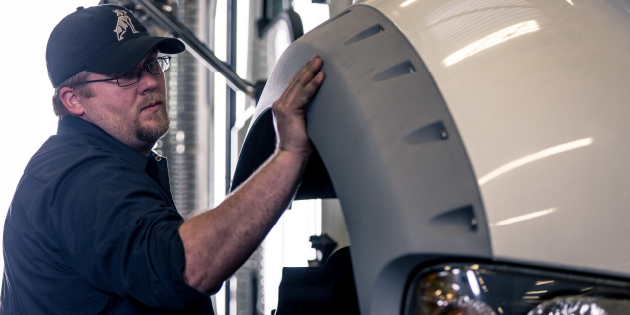The suspension systems on today’s trucks are lighter — and tougher — than ever before. And that’s good news for fleet owners and the industry in terms of reduced fuel use and longer maintenance intervals.
But because new truck suspensions are so dependable, some fleets have been lulled into thinking that they don’t need routine inspection or maintenance. In other words, torque rods, bushings and other suspension components don’t get much attention unless a driver complains about comfort or handling, or if tire patterns on a vehicle show signs of excessive or premature wear.

That’s bad practice, of course. Here are several reasons why.
Vehicles that show signs of worn torque rods or bushings should be taken off the road and serviced to protect drivers and prevent tire damage.
What to Look for in Replacement Components
Heavy-duty trucks require heavy-duty suspension components. For fleets, the best choice may be torque rods with rotating pins in the bushings and two-piece weldable rods. Both eliminate the need to stock multiple parts for fleets that have limited storage space.
For bushings, consider polyurethane replacements instead of rubber. Polyurethane is impervious to oil, grease, diesel fuel and cleaning solvents, which means that it will hold up longer than rubber counterparts. Also, polyurethane is at least twice as strong as rubber. That means you can expect to replace polyurethane bushings less frequently, which should save your fleet money on replacement components and downtime over the life of a vehicle.
Our expert technicians at The Surgenor Truck Group can work with you to maintain your vehicle’s suspension system through regular inspection and maintenance of torque rods, bushings and other key components.